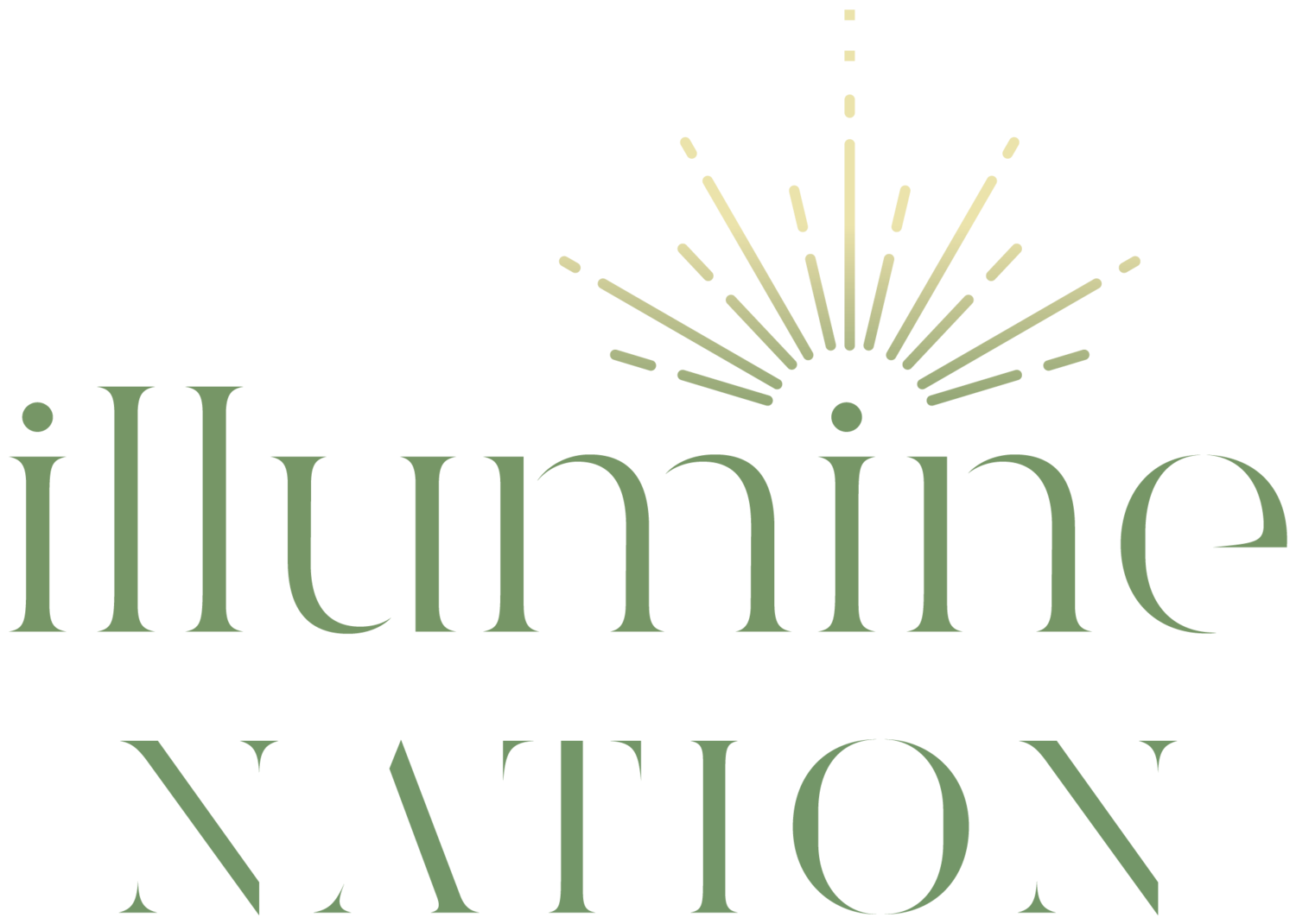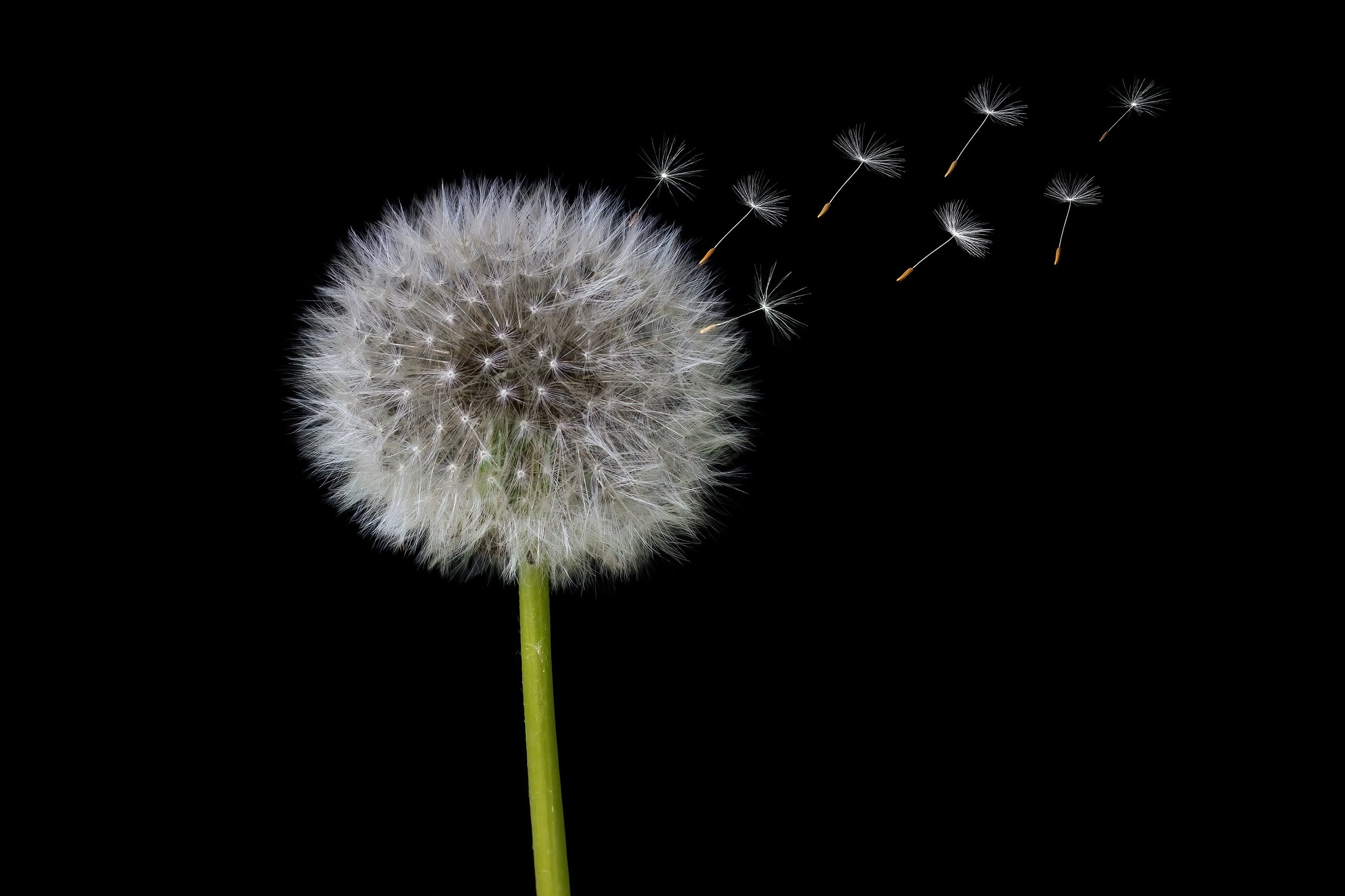Letting Go - Letting Be
There’s a story about letting go that I have always loved.
Michael was walking along the edge of a cliff when he slipped and fell over the edge and plunged down into the abyss below. As he was falling, he just managed to grab hold of a small tree that was growing out of the cliff face. He knew he couldn't hold on for long, so, he prayed for help. "Dear God, please help me?" he cried. Out of the heavens a great booming voice said, "MICHAEL, LET GO!" "What, are you crazy, who said that?" Michael replied. "Michael, this is God, trust me, just let go." No way God, that's insane, I will die and I don't want to die." Slowly but surely Michael's strength gave out and he lost his grip on the tree and fell; one metre to the ledge below him.
Like Michael, we tenaciously hold onto things that cause us great suffering, and even though we may be aware of this, we still find it very difficult to let go. We hold onto our fear, anger, impatience, grievances, intolerance, negative judgments about ourselves and others that all limit and contract our experience of who we are, and, who everyone else is too for that matter. The list goes on and on.
When we already understand that this practice of holding on causes us suffering, then the obvious question that arises is, why? Why do we want to hold on to these things?
If we asked this question to a group of people I'm sure we'd get many different answers. However let me posit one answer that may address a predicament we find ourselves in that's relatively fundamental and essential to nearly all of us.
That is, we persist in holding onto things even when they create suffering because they are familiar to us; and in that environment of familiarity, there exists a certain comfort and security. In the context of that familiarity, comfort and security, we experience what we believe is crucial to live our life—identity. In other words, even though we hold onto things that we know are detrimental to our state of freedom and well being, they still serve a purpose, they define who we are; they give us a sense of self: flawed it may be, but what is the alternative? Being able to identify ourselves with our history or life-story, our gender, race, our body, our habits, thoughts and emotions, gives us a sense of assurance, and in that assurance there is a certain safeness, whether we're conscious of this or not.
But can we experience another way of living or being that is free of "holding on?" A way of experiencing our self and the world we live in that is not confined to the boundaries that identification with body, race, gender, thoughts and feelings, etc, impose on us?
Perhaps we can: let me try and illustrate this by sharing a recent experience with you.
I was riding on the train going into the city recently and while wearing masks is still mandatory on public transport, out of the fifteen passengers in my carriage, only six were wearing masks; me being one of them. I became aware that I was beginning to feel angry towards the non-wearing mask passengers, with thoughts arising in my mind like, "is it too much to ask to make just that little bit of effort while traveling on public transport?" "You may be putting vulnerable people with weak immune systems at risk." "Why can't we compromise our comfort a little for just the time we travel on a train for the greater good of the whole?" As I watched my thoughts and felt that froth and bubble of anger arise, I could also see that I had a number of choices in regard to how I could respond to this situation.
One—I could go around to each individual and ask politely as possible to please wear their mask. No, I don't think so—this more than likely would only serve to escalate the situation into a conflict. Okay, two—I could steam in my anger and get more and more irritated—not very appealing. Three—I suppose I could just get off the train at the next station, but that would probably annoy me even more.
Four—I could detach myself from my mind by telling myself "I am not these thoughts, I am not these emotions, I am the silent observer of this phenomena—better; I stop identifying myself with thoughts and feelings that are making me suffer. However, as I continued to reflect I chose another option. The word that comes closest to describing this option is integration.
What I mean by integration is that I take some time to pause by focusing on my breath, and practice immersing myself in awareness, while simultaneously acknowledging that I'm angry. From that place of conscious awareness, I don't feel the need to shut down my angry thoughts and feelings, judge them, or detach myself from them. I recognise that they’re really just a conditioned behavioural response pattern that has been triggered by the way I have reacted to similar situations over many years of living life. However when I experience them in the context of awareness, I experience them more as just being a small part of me, existing in a far larger sense of who I am.
Another way of saying this is rather than letting go, I'm letting be. I'm not acting on my thoughts and feelings or identifying myself with them—I'm okay with just letting them be, knowing that ultimately, in their own time, they will disappear, as they always do. This approach enables me to relax into simply being and accepting, and as I relax, the energy of my thoughts and emotions don't take long to dissipate. This practice of, or approach to, "letting be," frees me from the contracting influence my judgmental thoughts and angry feelings have on me.
The scenario on the train I just described is relatively minor compared to other circumstances we experience in life. But it's situations like these, when we're not in a state of overwhelm, that we can be more successful in practicing letting go. This prepares us for the big events that we inevitably confront in life, such as illness or death. For example, we might be inspired to run a marathon but we don't suddenly take off on the weekend and try to run it. No, we to go into training and build up our strength and endurance. Similarly, we can train ourselves to be able to let go of anything we need to by practicing on the day to day challenges that come up in our lives.
Danna Fauld’s poem "Allow" from her book "Go In and In” encapsulates for me the essence of letting be.
There is no controlling life.
Try corralling a lightning bolt,
containing a tornado. Dam a stream
and it will create a new channel.
Resist, and the tide will sweep you off your feet.
Allow, and grace will carry you to higher ground.
The only safety lies in letting it all in—
the wild and the weak; fear,
fantasies, failures and success.
When loss rips off the doors of the heart,
or sadness veils your vision with despair, practice
becomes simply bearing the truth.
In the choice to let go of your known way
of being, the whole world is revealed to your new eyes.
Coming back to the story about Michael holding on to the tree branch—It’s a metaphor on life. All of us hold onto something that causes us suffering, but if we can let go, or just let be, we’ll find the ledge is always underneath us—that ledge being the ever present awareness, beingness and freedom of our greater self.
Robert Langworthy


